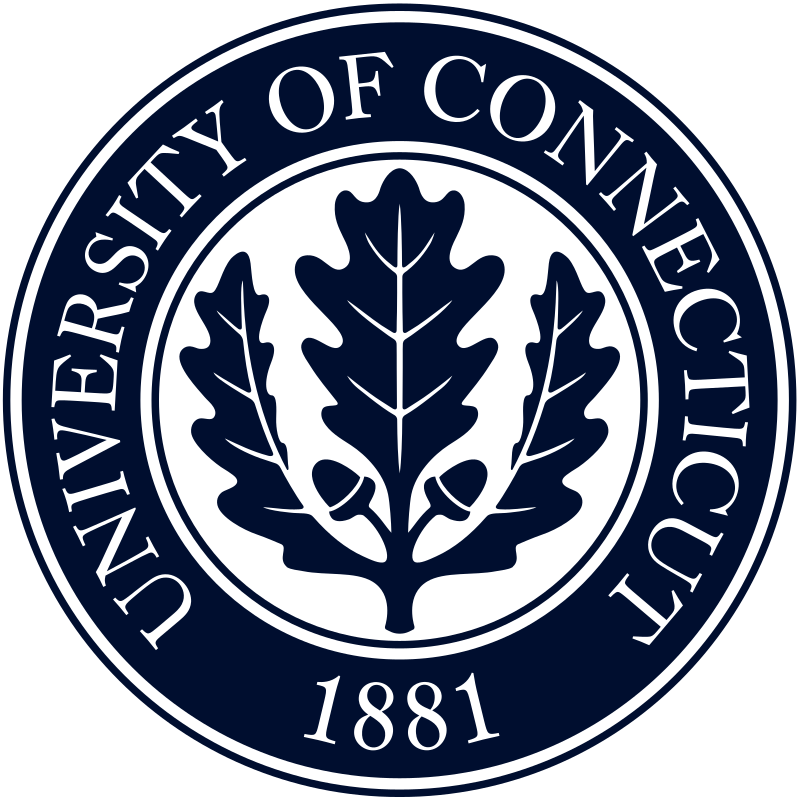UConn Humanities Dissertation
Scholars To aid emerging UConn scholars, UCHI offers, with support from the Office of the Vice Provost for Graduate Education and Dean of The Graduate School and the James L. and Shirley A. Draper Fellowship Fund, up to four residential graduate dissertation fellowships. Humanities Dissertation Scholars receive a full academic year fellowship to enable dissertation fellows to concentrate solely on completion of their Ph.D. dissertation. Teaching during the fellowship year is prohibited. Graduate students must have completed qualifying exams and prospectus and sufficient research so they can complete the dissertation during the year-long fellowship period. Students scheduled to defend in the Fall semester are not qualified for the fellowship. Humanities Dissertation Scholars will have an office and are expected to be in continuous residence at UConn for the term of the award. They are expected to participate in Institute activities including bi-weekly teas, colloquia, related scholarly events, and offer a public lecture on their research during the course of the fellowship year. Finally, Humanities Dissertation Scholars are expected to acknowledge the University of Connecticut Humanities Institute in publications resulting from work supported by the Institute.
Proposal Evaluation:
Applications for Humanities Dissertation Scholars are evaluated by members of the Institute’s Advisory Board. In all cases, the following criteria will be used in evaluating applications for Fellowships:
● Significance of the contribution that the project will make to knowledge in the specific field and to the humanities generally;
● Quality and/or promise of the applicant′s work as an interpreter of the humanities;
● Quality of the conception, definition, organization, and description of the project;
● Likelihood that the applicant will complete the project
The narrative describes the substance of the project and its scholarly contribution. Because some evaluators will not possess specialized knowledge of the proposed field of study, the description should be free of jargon.
It should include the following elements:
a. Research Contribution and Wider Significance: Describe the basic ideas, problems, works, or questions the study will examine, and the intellectual contribution of the proposed project. Explain how the project is distinctive, and how it challenges and/or expands upon existing work in the relevant field. In addition, and especially in cases where the subject of the study might appear narrow or obscure, the proposalshould show the project′s largersignificance.
b. Methods and Work Plan: Outline a proposed schedule or plan of work that the applicant will follow during the fellowship period.
c. Audience and Distribution: For what audience are the results of the study intended? What kind of product is planned?
d. Competences and Resources: What is the applicant′s competence in the skills, techniques and/or languages needed for the study? What materials will be used? What is the likelihood of access to archives, collections, or institutions with necessary resources?
3. Bibliography: Following the description of the project the applicant should include a one-page list of publications by other scholars, or primary materials that the applicant has used or plans to use and that are relevant to the project. This list of readings and resource materials is vital because reviewers use it to determine applicant′s preparation in the subject, the applicant′s interests, and the approach to the topic.
4. Résumé: The résumé should be in concise, outline form, should not exceed two pages in 12 pt. font and shouldinclude: a. Applicant′s education, including titles of any theses or dissertations, and dates when degrees were awarded; b. Record of employment, whether part-timeor full-time; c. List of publications—for journal articles and book chapters, include page numbers; d. List of awards and grants received in the prior decade, including source, dollar amount, and terms of such awards and grants.
5. Reference Letters: Request three signed (3) letters (no more) of reference to be sent directly by the referee to the Humanities Institute at uchi@uconn.edu no later than February 1st . (*One letter should be from the professor who will supervise the project.) The referee′s title and address must be included. Reference letters should provide important information about the applicant and the specific fellowship proposal, including the project′s significance to the field, its intended audience, the likely outcome, the general quality of the applicant′s work, and the applicant′s ability to carry out the project successfully. It is the applicant’s responsibility to: a. Send the full proposal to each referee; b. To request that referees send letters of reference directly to the Humanities Institute; c. To have letters of recommendation written in a foreign language translated into English.
This opportunity has expired. It was originally published here:
https://humanities.uconn.edu/wp-content/uploads/sites/785/2018/09/Dissertation-Scholars-fellowship-packet-2.pdf
